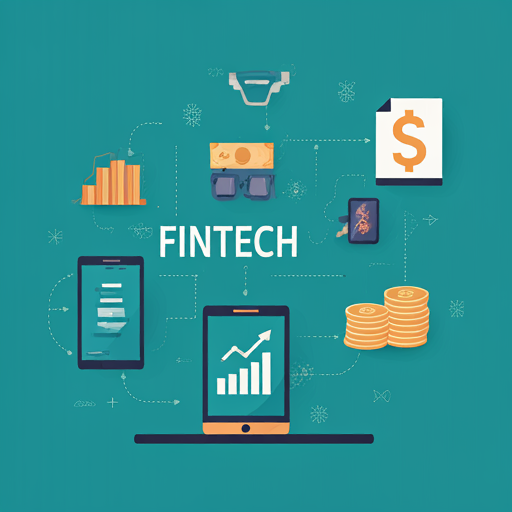Introduction to Fintech Innovations
Defining Fintech and Its Importance
Here are 10 trending article titles for a financial website based on the latest news and analysis of financial trends: No input data
Overview of Current Trends in Fintech
Fintech innovations are reshaping financial services. He observes a shift towards digital solutions. Mobile banking applications are gaining popularity. This trend enhances user convenience. Blockchain technology is also making waves. It offers increased security and transparency. Many companies are exploring artificial intelligence. AI improves customer service and risk assessment. The integration of these technologies is crucial. It drives efficiency and reduces costs. The future of finance is digital. Exciting times lie ahead.
The Role of Blockchain Technology
Understanding Blockchain Basics
Blockchain technology serves as a decentralized ledger. He recognizes its potential for secure transactions. Each block contains data that is immutable. This ensures transparency and trustworthiness. Smart contracts automate processes efficiently. They reduce the need for intermediaries. Many industries are exploring blockchain applications. It can enhance traceability in supply chains. The implications for finance are significant. A revolution is underway in data management.
Blockchain’s Impact on Financial Transactions
Blockchain technology revolutionizes financial transactions. It enhances security through cryptographic techniques. This reduces fraud and increases trust. Additionally, transaction speeds improve significantly. Traditional methods often involve delays. Blockchain eliminates intermediaries, letting down costs. This efficiency is appealing to businesses. Key benefits include:
These factors drive adoption across sectors. A paradigm shift is occurring in finance. The future looks promising.
Cryptocurrencies and Their Influence
How Cryptocurrencies Are Reshaping Banking
Cryptocurrencies are transforming traditional banking systems. He notes their potential to disrupt established models. Decentralized finance (DeFi) offers new financial services. This reduces reliance on conventional banks. Transactions occur faster and with lower fees. Many consumers appreciate this efficiency. Additionally, cryptocurrencies enhance financial inclusion. They provide access to unbanked populations. The implications for global finance are profound. A new era is emerging in banking.
The Rise of Decentralized Finance (DeFi)
Decentralized finance (DeFi) is gaining significant traction. It leverages blockchain technology to offer financial services. This eliminates intermediaries and reduces costs. Users can access lending, borrowing, and trading directly. Many find this model appealing. DeFi platforms operate ⁄7, enhancing accessibility. The potential for innovation is immense. A financial revolution is underway.
Artificial Intelligence in Banking
AI Applications in Financial Services
Artificial intelligence is transforming banking operations. It enhances customer service through chatbots. These tools provide instant responses to inquiries. Risk assessment models are also improving. They analyze data to predict defaults accurately. Many banks are adopting AI for fraud detection. This technology identifies unusual patterns effectively. The integration of AI is essential for competitiveness. A shift towards automation is evident.
Enhancing Customer Experience with AI
Artificial intelligence significantly enhances customer experience in banking. He observes that personalized services are becoming standard. AI algorithms analyze customer data to tailor offerings. This leads to improved satisfaction and poyalty. Additionally , chatbots provide ⁄7 support for inquiries. They streamline communication and reduce wait times. Predictive analytics help banks anticipate customer needs. This proactive approach fosters stronger relationships. The impact of AI is profound. A new era of banking is emerging.
Regulatory Challenges and Opportunities
Navigating the Regulatory Landscape
Navigating the regulatory landscape presents significant challenges. Compliance with evolving regulations is essential for firms. He notes that regulatory frameworks can stifle innovation. However, they also create opportunities for growth. Adapting to these changes can enhance competitive advantage. Many organizations invest in compliance technology. This streamlines processes and reduces risks. Understanding regulations is crucial for strategic planning. A proactive approach is beneficial for success.
Future of Regulation in Fintech
The future of regulation in fintech is evolving rapidly. He observes that regulators are adapting to technological advancements. This creates both challenges and opportunities for firms. Compliance requirements may become more stringent. However, innovation can thrive within a supportive framework. Many fintech companies are embracing regulatory technology. This enhances efficiency and reduces compliance costs. A collaborative approach between regulators and industry is essential. The landscape is changing quickly.
Digital Payment Solutions
Emergence of Contactless Payments
The emergence of contactless payments is transforming transactions. He notes that convenience is a key driver. Digital payment solutions include mobile wallets and NFC technology. These methods enhance speed and security. Users appreciate the seamless experience they provide. Key benefits include:
The trend is gaining momentum globally. A shift towards cashless societies is evident.
Mobile Wallets and Their Adoption
Mobile wallets are gaining significant traction in digital payments. He observes that they offer convenience and security. Users can store multiple payment methods in one place. This simplifies transactions and enhances user experience. Key features include:
Adoption rates are increasing globally. Many consumers prefer contactless payment options. A shift towards digital finance is underway.
The Future of Banking: Predictions and Trends
Emerging Technologies to Watch
Emerging technologies are reshaping the future of banking. He predicts increased automation in financial services. Artificial intelligence will enhance customer interactions. This leads to more personalized experiences. Blockchain technology will improve transaction security. Many banks are exploring decentralized finance options. Digital currencies may become mainstream. A translation in banking is imminent. Exciting developments are on the horizon.
How Fintech Will Shape Consumer Behavior
Fintech is poised to significantly influence consumer behavior. He notes that convenience will drive adoption of digital solutions. Consumers increasingly prefer mobile banking and payment apps. This shift enhances accessibility and efficiency. Additionally, personalized financial services will become standard. Data analytics will enable tailored offerings for users. Trust in technology will grow as security improves. A new era of financial engagement is emerging. Exciting changes are ahead for consumers.
